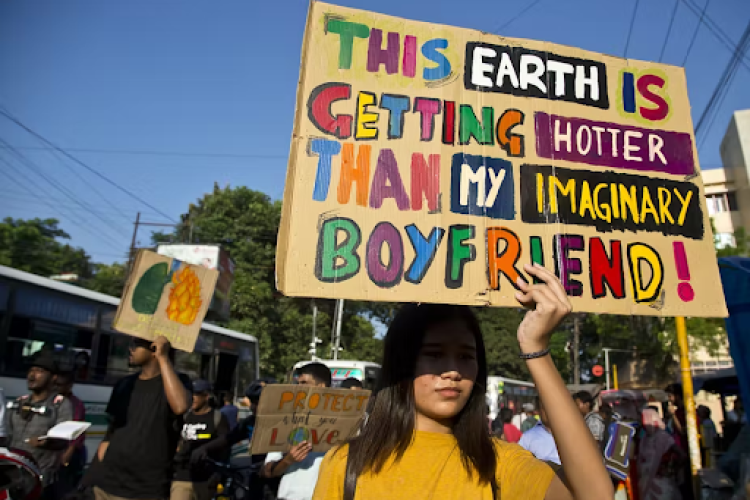
There is an elephant in the room. It is there – existing quietly in its large, undeniable presence – and yet, for some inexplicable reason, it is also not there. Of its presence, it is perhaps more accurate to say that it is only there when everyone in the room is in the mood to enjoy embrace its company, or when a number of people are intimidated by its imposing existence and for yet another dubious reason, choose to blame their discomfort on those who are not particularly bothered by the rather claustrophobic living arrangement.
That poor elephant is sex.
And together with sex (and sexuality in general), we all live within the confines of a room we have come to know as society. There are times when we happily acknowledge our fellow roommate, that is, when we are willing to give in to our animal instincts and joyously swim in all the pleasures it has to offer. But there are also times when the circumstances are not so favorable – turning an otherwise harmonious state of cohabitation into a messy conflict in which moralistic, religious, or lifestyle “values” (or pure frustration) become the weapons of choice. But the most common case is when sex becomes “the elephant in the room” in the original figurative sense: it takes up most of our space, but we choose not to deal with it. This neglect is apparent in the near absence of casual or serious references to sex in public discourse in contemporary Indonesia.
But before we move on any further, we must first distinguish the differences between sex as a physical act, sex as a topic of discussion, and sex in pornography. What will be covered in this essay are questions concerning the common Indonesian attitude (or lack thereof) towards sex as a topic of discussion. While the three categories of “sex” are only separated by very thin lines, ignoring those lines altogether would not help us to understand why the relationship between Indonesians and sex are so inconsistent.
The extremely prolific writer Goenawan Mohamad wrote in his 1969 essay, “Sex, Literature, Us” (“Seks, Sastra, Kita”), that there was a major shift in Indonesian literature – causing a heightened “self-consciousness” among writers of the modern era (1930s onwards). Sex suddenly became a delicate, of not fragile subject. When publishing works anonymously or signed but distributed in exclusive groups were the norm, writers displayed no reluctance to express their thoughts – including those regarding sex. But as the literate population grew, writers were pushed out of their comfort zones, and thus became more cautious about how their readers perceived them. Why the fear? Why must they be cautious?
Goenawan noted that while there are many factors that have an impact on the complexities of sex and literature, some stand out more than others:
“Some of the most important ones [factors] are the various systems of values: the Islamic faith, customs, the church, obedience to traditions that are combined with the discipline of Dutch education. An important part of our lives are determined by those systems, including our inhibition towards things that concern genitalia. This is a social fact that is very clear. This a social fact that becomes all the more so when the existing system of values are in turmoil and unstable.”
He goes on to say that in such times of turmoil and instability, people tend to look for something to hold onto, even if that something is the crumbling system that they want to flee from. This is because we would rather live with a system rather than with no system, for living in a complete state of freedom is undesirable. Unlike old (pre-modern) Indonesian literature, which flourished in a tolerant culture where sexuality was not something that was shunned, but wholly accepted. Such a level of tolerance was the result of “a sense of security from the disturbances of change, and possessed a strong sense of self.”
What sort of conclusions should we draw from Goenawan’s observations? It seems that the confusing attitude that our contemporary society has towards sex is rooted in various factors that were no less confusing during the early stages of modern literature. The contradictions mentioned in the essay still exist today, although they have morphed into other forms that seem to have caused an even greater systemic instability. For instance, the tension between the already complex “local systems” and “foreign systems” adapted by means of foreign entertainment (especially the Internet) and Indonesians who have studied or lived abroad is now greater than ever. How much more can we handle until we snap? Is it possible for us to adapt foreign ideas of sexuality to revive, or even replace our own problematic ones? But how can we even begin to understand the way other societies approach sexuality when we do not, or no longer understand our own context (or even if we have one absolute context)? And more importantly, will we ever be able to detach sex from a constructed “system” and go back to embracing it as an essential part of humanity – or humanness, rather – in the same manner the society that gave birth to old Indonesian literature did?
At the moment, there are no gray zones. There only seems to be an invisible spectrum with nothing but its two ends – black and white – that has overshadowed the public consciousness. On one end, there are those who adhere to the values they regard as absolute and on the other, there are those who want something new. And yet the room is still quiet. There are no discussions. The elephant still has to wait. Amid the silence and the waiting, disquieting daily realities concerning sexuality continue to prevail. They are disquieting because they are contradictory. There is no sex education in schools, perhaps due to the assumptions of the institutions in question that existing “values” deter sexual activity, and yet students are blamed for getting pregnant or raped. Or to bring up a more recent example, political parties affiliated with certain religions or promote moralistic values hired scantily clad female performers to attract the masses during their campaigns. Occasional voices of protest can be heard, but not enough to spark a deeper, and more widespread discussion.
When will we finally allow the elephant to return to its natural habitat?











